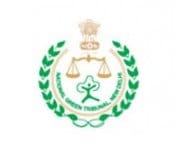National Green Tribunal forms committee to stop illegal groundwater extraction
Expressing concern over depleting groundwater levels, the National Green Tribunal (NGT) has set up a committee to formulate steps required to prevent illegal extraction of groundwater.
NGT’s decision was take in response to hearing of a plea filed by a city resident, Shailesh Singh seeking action against depleting groundwater levels in nation and prevention of its illegal extraction.
Key Highlights of Committee
A bench headed by NGT Chairperson Justice Adarsh Kumar Goel directed the committee to evolve a robust mechanism for ensuring that groundwater is not illegally extracted and to monitor manning and functioning of Central Ground Water Authority (CGWA).
Committee may look into the reports already submitted. The report may be furnished within 2 months by e-mail.
Members: Committee comprises of joint secretaries of Union Ministry of Environment and Forests (MoEF) and Union Ministry of Water Resources (MoWR), Central Ground Water Board (CGWB), National Remote Sensing Centre, National Institute of Hydrology (Roorkee) and Central Pollution Control Board (CPCB).
Nodal agency will be the Joint Secretary, Union Ministry of Water Resources (MoWR) for coordination and compliance.
Arguments by NGT
The tribunal took to notice that despite a 1996 order of Supreme Court order with regard to groundwater extraction, the water level has only gone down. The SC order had directed central government to constitute a body to look into the issue of groundwater depletion.
However, in spite of clear directions of Supreme Court, the CGWA is unwilling to take the ownership of subject and repeatedly takes the plea that it does not have infrastructure or that the responsibility of dealing with problem is of States and not that of the said authority.
Thus NGT stressed that it is high time that working of CGWA is reviewed and remedial measures are taken, including assessment of suitability of the person to head it. NGT also held that CPCB report that states that water intensive industries can be allowed even in semi-critical and critical areas without any further safeguards may not be acted upon till further orders.
Month: Current Affairs - September, 2019


